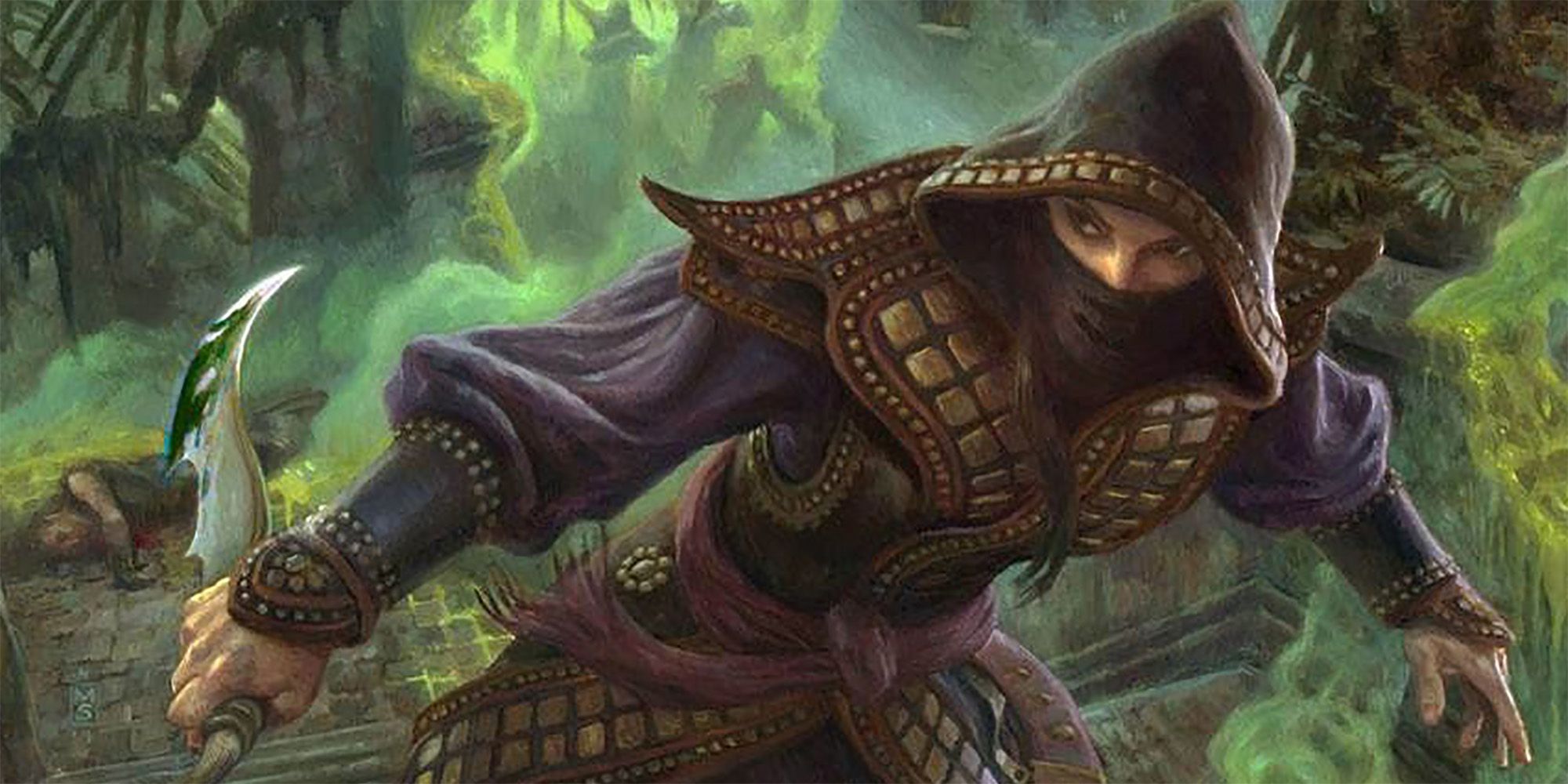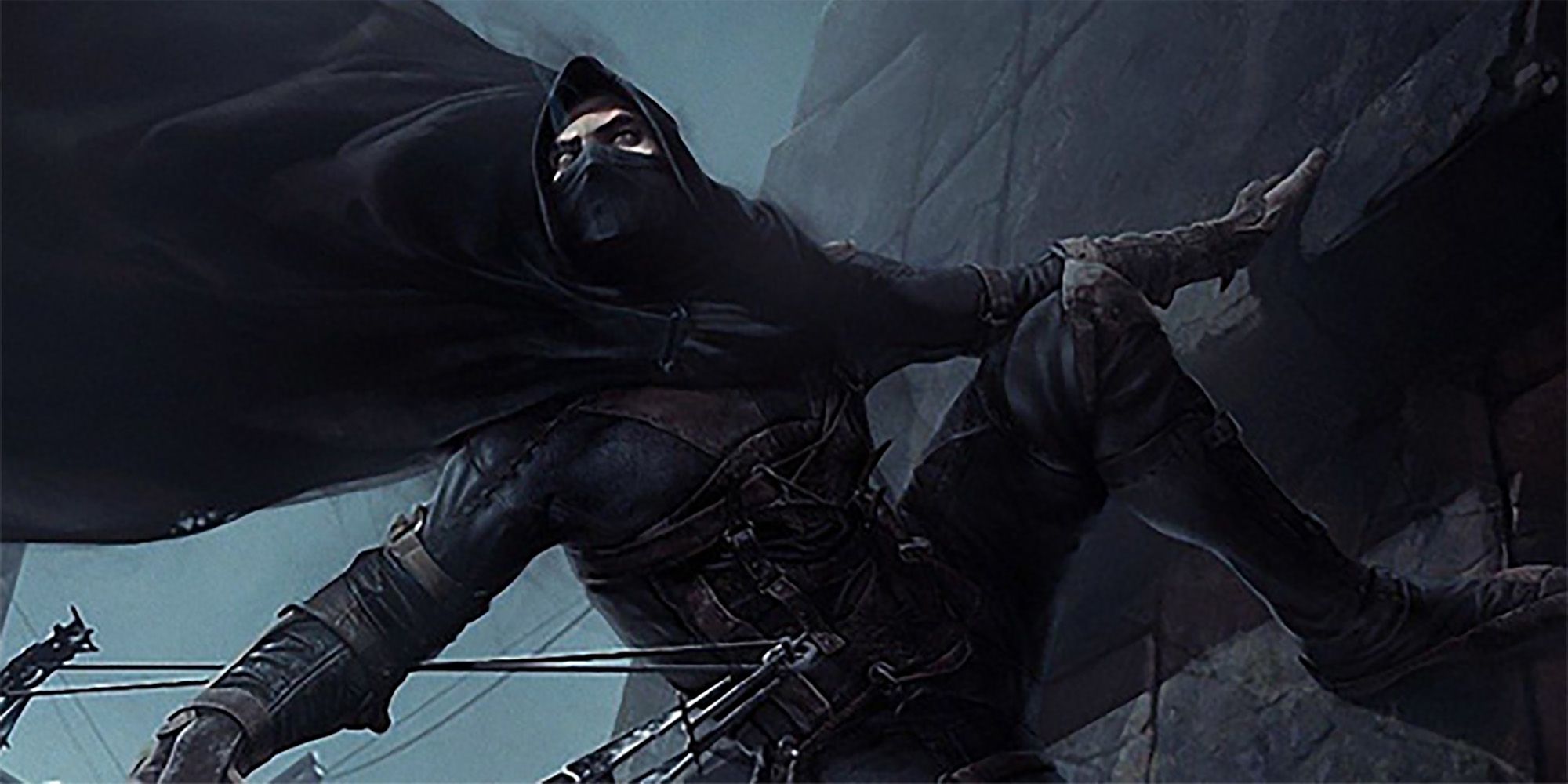When Dungeons & Dragons first began, there were only three classes: Rogue, Fighter and Wizard, and as the game has evolved over the decades so have those original classes. Rogues can be the party's most cunning and versatile character, slinking through shadows, taking care of pesky traps before the party sets them off and opening up chests and doors as if they were never locked at all.
Regardless of the Rogue's subclass, they will have just about everything they need to be an indispensable asset to the rest of their party. That being said, there are some useful feats that make a Rogue even more valuable.
Skulker Makes a Stealthy Rogue Even Stealthier
One of the key aspects of the Rogue class is the ability to sneak around undetected -- especially when setting up a powerful Sneak Attack from the shadows. Well-built Rogues have the skillset to do just that, but it never hurts to maximize that ability with a feat like Skulker. Skulkers are experts when it comes to moving through the shadows and can attempt to hide even when they are only lightly obscured.
Skulker also protects a hidden Rogue from revealing their position should one of their ranged attacks go awry and miss the target. Because they are basically one with the shadows, they no longer have disadvantage on Perception checks relying on sight in dim light. As a prerequisite, the Rogue's Dexterity must be at least 13, which shouldn't be an issue if the character was built properly from the start.
The Slasher Feat Improves Bladed Weapon Attacks
A lot of Rogues rely on their ability to wield daggers in melee combat situations, and the Slasher feat bolsters their bladed attacks in a big way. First and foremost, the feat allows the Rogue to boost their core stat (Dexterity) by one, and if their DEX is already maxed out, they can boost Strength instead. In addition to the stat boost, they can reduce an enemy's speed by 10 once per round if they hit with an attack that deals slashing damage.
If the Rogue makes a critical hit against a creature with a slashing attack, that creature will be so grievously wounded that its ability to attack is impaired. The creature has disadvantage on all attack rolls until the start of the Rogue's next turn.
Poisoner's Can Add Deadly Damage to Their Attacks
Rogues and poison seem to go hand in hand, which makes taking the Poisoner feat a must. Not only does the Rogue gain proficiency with the Poisoner's Kit (assuming they don't already have it), but they can also apply poison to their weapons and ammunition using a bonus action instead of an action. That means they can take quick advantage of their freshly poisoned weapon to reap extra damage on the same turn and potentially poison an enemy until their next turn.
Adding poison damage to a Rogue's arsenal stacks up nicely with sneak attack damage. If the target fails their Constitution saving throw and becomes poisoned, they have disadvantage on all attack rolls and ability checks.
Other Useful Feats for Rogues
Alert is great for Rogues because it gives them an additional +5 to their Initiative Bonus, which potentially puts them at the top of Initiative so they can get the drop on unsuspecting enemies. Depending on the Rogue's subclass, with the Alert feat, they could potentially take an enemy out permanently during a surprise round before combat even starts. Alert Rogues also can't be surprised, and attackers don't gain advantage on attacks against them when the Rogue can't see them.
Dual Wielder allows a Rogue to doubly arm themselves, and having a dagger in each hand means more damage. They can also gain an additional +1 to their Armor Class, which is never a bad thing. Finally, Mobile increases the Rogue's movement speed by 10, and they can use the dash action in difficult terrain to avoid the disadvantages it typically poses. When targeting an enemy with a melee attack, they can't make opportunity attacks against the Rogue, even if the attack misses.





